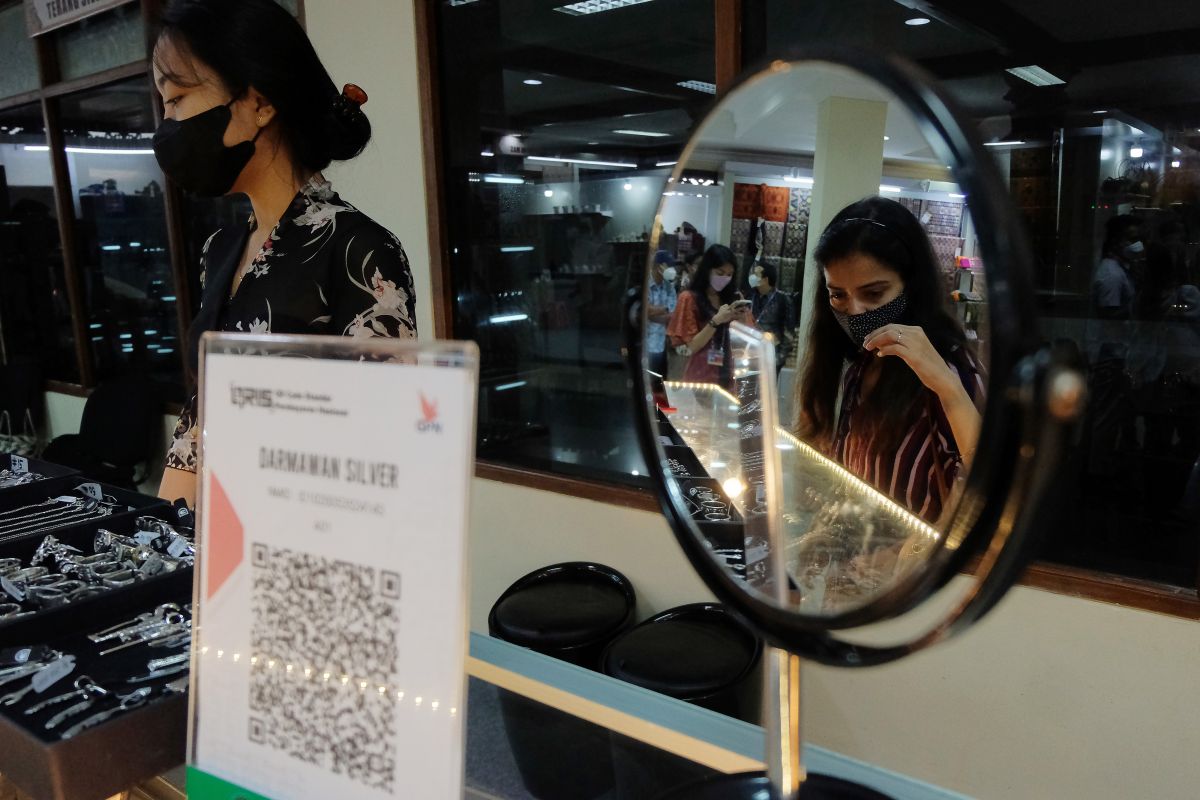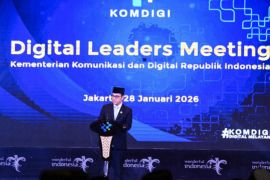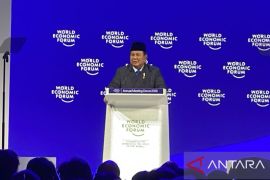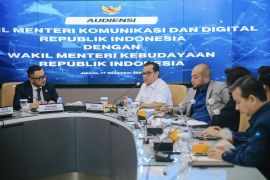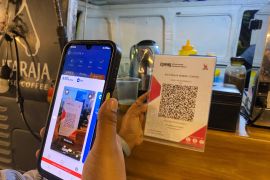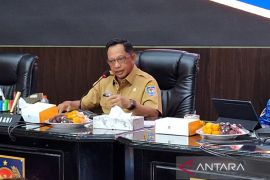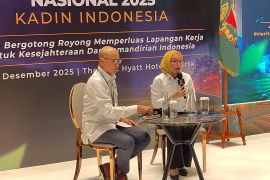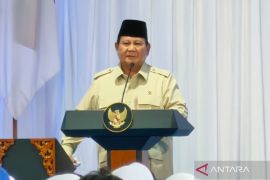To fellow BI colleagues, I compel them to constantly assist Indonesian MSMEs in their efforts to make MSME products or domestic products dominate the marketplace, and prepare competitive MSME products for the global marketJakarta (ANTARA) - Bank of Indonesia (BI) recorded a spike in digital transaction users, reaching 21 million people in 2022, owing to a decline in travel due to the years-long COVID-19 pandemic.
The pandemic had encouraged people to develop digital literacy skills, resulting in rapid growth in the last two years.
Surprisingly, 72 percent of the new customers are from outside big cities.
This means that people in remote areas are currently also 'forced' to be digitally literate.
Limited infrastructure in remote areas and borders did not hinder the development of digital transactions.
People seem to constantly seek out ways to access digital services.
Products comprising digital banks and officeless bank services also encourage digital transactions to flourish among members of the public.
Related news: Digitalization as tool to achieve inclusive economy: BI
Director of Payment System Policy Director Fitria Irmi Triswati stated that BI and other regulators, such as the Financial Services Authority, the Deposit Insurance Corporation, and relevant ministries and institutions, continuously promote digitalization for the public, as they were confident that it was secure and more efficient.
"This means that regulators are supervising through regulations and monitoring, so that digital transactions are indeed profitable for the community or become solutions to problems that have existed so far," she remarked.
Triswati suggested that it was equally important for everyone to encourage MSME players to familiarize themselves with digitalization.
Development of the MSME sector was very important, as there were 64.19 million MSMEs in 2021, thereby contributing 61.97 percent of Indonesia's GDP and providing as much as 97 percent of employment.
Moreover, BI was directly involved in developing the MSME sector by launching the Indonesian Standard Quick Response Code (QRIS).
Meanwhile, cooperatives and SMEs Minister Teten Masduki remarked that collaboration among stakeholders is the key to successful digital transformation of cooperatives and micro, small, and medium enterprises (MSMEs),
Related news: Issues continue to hinder progress in social aid digitalization
He commended BI for hosting the 2022 Indonesian Creative Work, which served as a platform for collaboration for several stakeholders in terms of digitizing national MSMEs.
"To fellow BI colleagues, I compel them to constantly assist Indonesian MSMEs in their efforts to make MSME products or domestic products dominate the marketplace, and prepare competitive MSME products for the global market," he said.
Masduki emphasized that digital transformation would help build MSME resilience better amid digital disruptions and the COVID-19 pandemic, as the shift to the post-pandemic world begins. Thus, it is vital for MSMEs to prepare for digital transformation.
According to research conducted by World Bank, 80 percent of the MSMEs connected to the digital ecosystem had better resilience in the midst of the coronavirus pandemic.
"I noted two things. First, this pandemic has accelerated the digital transformation of MSMEs globally, including in Indonesia. Second, after the pandemic, the need for MSMEs to optimize the digital ecosystem will be unavoidable," he added.
As of April 2022, around 19 million MSMEs were said to have delved into the digital ecosystem. This figure added to the 11 million MSMEs, or 29.5 percent of the total MSME population, which had joined cyberspace since the start of the pandemic. The figure is closer to the target of connecting 30 million MSMEs to the digital ecosystem by 2024.
It has been projected that by 2030, the potential of Indonesia's digital economy will reach Rp4,531 trillion, thereby making it the largest in Southeast Asia.
This shows the increasing importance of preparation for mentoring and development strategies through digital technology for MSMEs.
Related news: G20 Sherpa encourages bolstering digitalization for economic recovery
The digital transformation of MSMEs is a holistic endeavor, not only in the marketing aspect but also in building an ecosystem that includes business processes from upstream to downstream, he pointed out.
Inclusive finance
BI Governor Perry Warjiyo emphasized that digitalisation represents a game changer in terms of increasing access to inclusive finance.
Governor Warjiyo outlined three critical steps to overcome the challenges constraining MSMEs in terms of limited economic ability, financial literacy, and access to digital infrastructure.
First, economic empowerment, including women as micro-entrepreneurs. Second, capacity building to improve productivity, literacy, and financial management through education supported by innovation and digitalisation of the business processes to strengthen more competitive MSMEs.
Third, he said, policy harmonisation, through BI's support for the Job Creation Act, which has streamlined the licensing process, while supporting an ecosystem for MSMEs and e-commerce platforms that unlocks access to domestic and global markets.
Minister of Finance, Sri Mulyani Indrawati, took the opportunity to reiterate the collateral constraints faced by women, adding that financial institutions seem reluctant to lend to younger people and MSMEs struggle with access to finance.
Such inauspicious conditions demand immediate attention and policy response. Financial inclusion and digitalisation, as a priority agenda of Indonesia's G20 Presidency in 2022, could significantly help to overcome such issues.
Related news: Some 18.7 million merchants, users registered to use QRIS: BI
Echoing those sentiments, Minister of Women's Empowerment and Child Protection I Gusti Ayu Bintang Darmawati explained that with the dominant contribution and population of MSMEs, women are the backbone of economic growth and stability.
Indonesia has implemented various programs to increase gender equality, entrepreneurship, and financial inclusion through training for women along with woman- and child-friendly villages as well as a regulatory framework that includes a national strategy for the financial inclusion of women, coupled with regulations that support female entrepreneurs while increasing access to credit for MSMEs.
GPFI Co-chair from the Bank of Italy, Magda Bianco, described how digitalisation has transformed our lives, in general, and the financial system, in particular.
Digitalisation has been a godsend during the pandemic, unlocking broad opportunities for MSMEs to innovative quality financial products and services, thereby increasing access, reducing transaction costs, and facilitating creditworthiness checks to ultimately create broader inclusion.
Related news: Need digital-ready society to realize Advanced Indonesia vision
Related news: Pursuing industrial digitalization through PIDI 4.0
Editor: Fardah Assegaf
Copyright © ANTARA 2022
